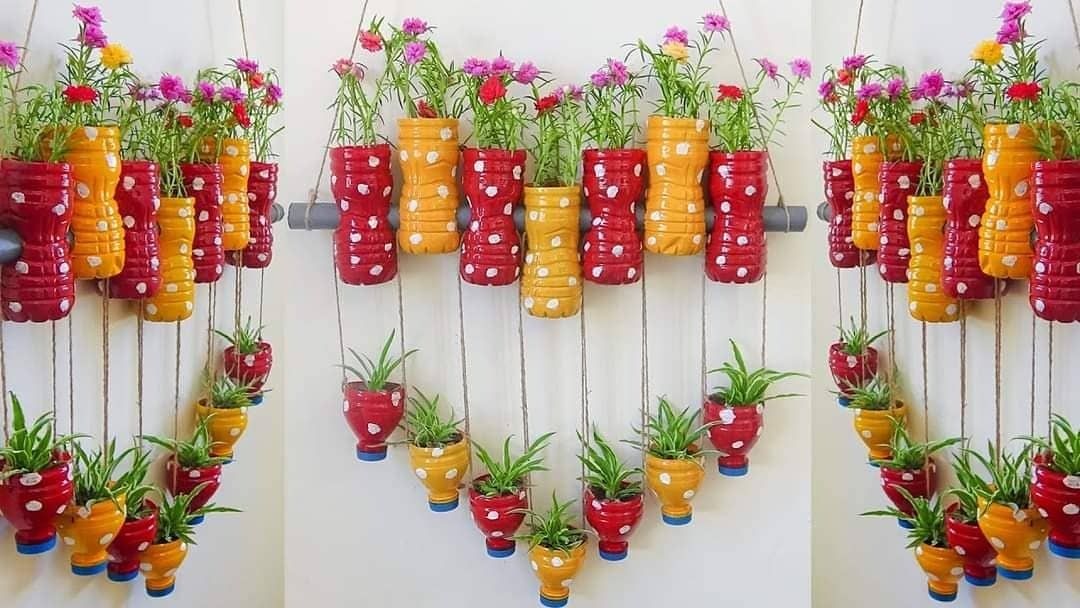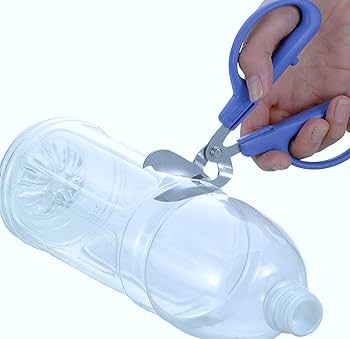Recycled plastic bottle planters are an innovative and eco-friendly gardening solution that repurposes used plastic bottles into functional plant containers. These DIY planters are cost-effective, versatile and help reduce plastic waste. They’re suitable for growing herbs, small flowers and even some vegetables, making them ideal for small spaces and urban gardening.
As an environmental horticulturist with over a decade of experience in sustainable gardening practices, I’m excited to guide you through the process of creating and utilizing recycled plastic bottle planters. This eco-friendly approach not only helps reduce plastic waste but also provides a creative and cost-effective solution for gardeners of all levels.
Benefits of Recycled Plastic Bottle Planters

Environmental Impact
- Reduces plastic waste in landfills and oceans
- Promotes recycling and upcycling
Cost-Effective
- Uses readily available materials
- Minimizes gardening expenses
Versatility
- Suitable for various plants and spaces
- Easy to customize and decorate
Educational Value
- Teaches children about recycling and gardening
- Promotes environmental awareness
For more information on plastic recycling, visit the EPA’s Recycling Basics page.
Creating Your Recycled Plastic Bottle Planter

Materials Needed
- Clean plastic bottles (various sizes)
- Sharp scissors or craft knife
- Drill or heated nail (for drainage holes)
- Paint or decorative materials (optional)
- Potting soil
- Seeds or small plants
Step-by-Step Guide
- Clean the Bottle
Thoroughly wash and dry the plastic bottle
- Remove labels and adhesive residue
- Cut the Bottle
For vertical planters: Cut the bottle in half horizontally
- For hanging planters: Cut a large rectangular opening on one side
- Create Drainage Holes
Drill or puncture several small holes in the bottom
- Ensure proper drainage to prevent waterlogging
- Decorate (Optional)
Paint the exterior or add decorative elements
- Consider non-toxic, water-resistant paints
- Add Soil and Plants
Fill the container with appropriate potting mix
- Plant seeds or transplant small plants
For creative planter ideas, check out the Royal Horticultural Society’s container gardening page.
Best Plants for Plastic Bottle Planters
Herbs
- Basil
- Mint
- Cilantro
- Parsley
Flowers
- Marigolds
- Petunias
- Zinnias
- Pansies
Small Vegetables
- Cherry tomatoes
- Lettuce
- Chili peppers
- Microgreens
Maintenance Tips
Watering
- Monitor soil moisture regularly
- Water more frequently than traditional pots due to smaller soil volume
Fertilizing
- Use liquid fertilizers diluted to half-strength
- Apply every 2-3 weeks during growing season
Sun Exposure
- Place planters in appropriate light conditions for chosen plants
- Rotate regularly for even growth
Repotting
- Transfer plants to larger containers as they outgrow bottle planters
For general container gardening advice, visit University of Illinois Extension’s Container Gardening page.
Creative Design Ideas
Vertical Garden Wall
- Attach multiple bottle planters to a wall or fence
- Create a living wall of herbs or flowers
Hanging Garden
- Use rope or wire to create hanging planters
- Ideal for balconies or small outdoor spaces
Windowsill Herb Garden
- Line up small bottle planters on a sunny windowsill
- Perfect for kitchen herbs
Classroom Project
- Engage students in environmental education
- Combine lessons on recycling, plant biology, and gardening
Potential Challenges and Solutions
Limited Root Space
- Choose plants with shallow root systems
- Repot into larger containers as needed
Plastic Degradation
- Replace bottles every 1-2 years
- Use UV-resistant paint to extend lifespan
Aesthetics
- Get creative with paint and decorations
- Group planters for a more cohesive look
Environmental Considerations
While recycled bottle planters are eco-friendly, consider these points:
- Eventually, bottles will need to be recycled again
- Use non-toxic, environmentally safe paints and decorations
- Consider biodegradable alternatives for long-term gardening
For more on sustainable gardening practices, check out the Sustainable Gardening Institute.
Recycled plastic bottle planters offer a creative, eco-friendly, and cost-effective solution for gardeners of all levels. By repurposing plastic waste into functional and attractive plant containers, we can reduce our environmental impact while enjoying the benefits of gardening. Whether you’re an urban dweller with limited space, a teacher looking for an engaging classroom project, or a gardening enthusiast passionate about sustainability, these DIY planters provide endless possibilities. Remember, every small step towards reducing plastic waste and increasing green spaces contributes to a healthier planet. Happy planting!
For more ideas on upcycling in the garden, visit Garden Organic’s recycling and reusing page.
For more gardening tips and plant care guides, visit usagardenhub.com.

